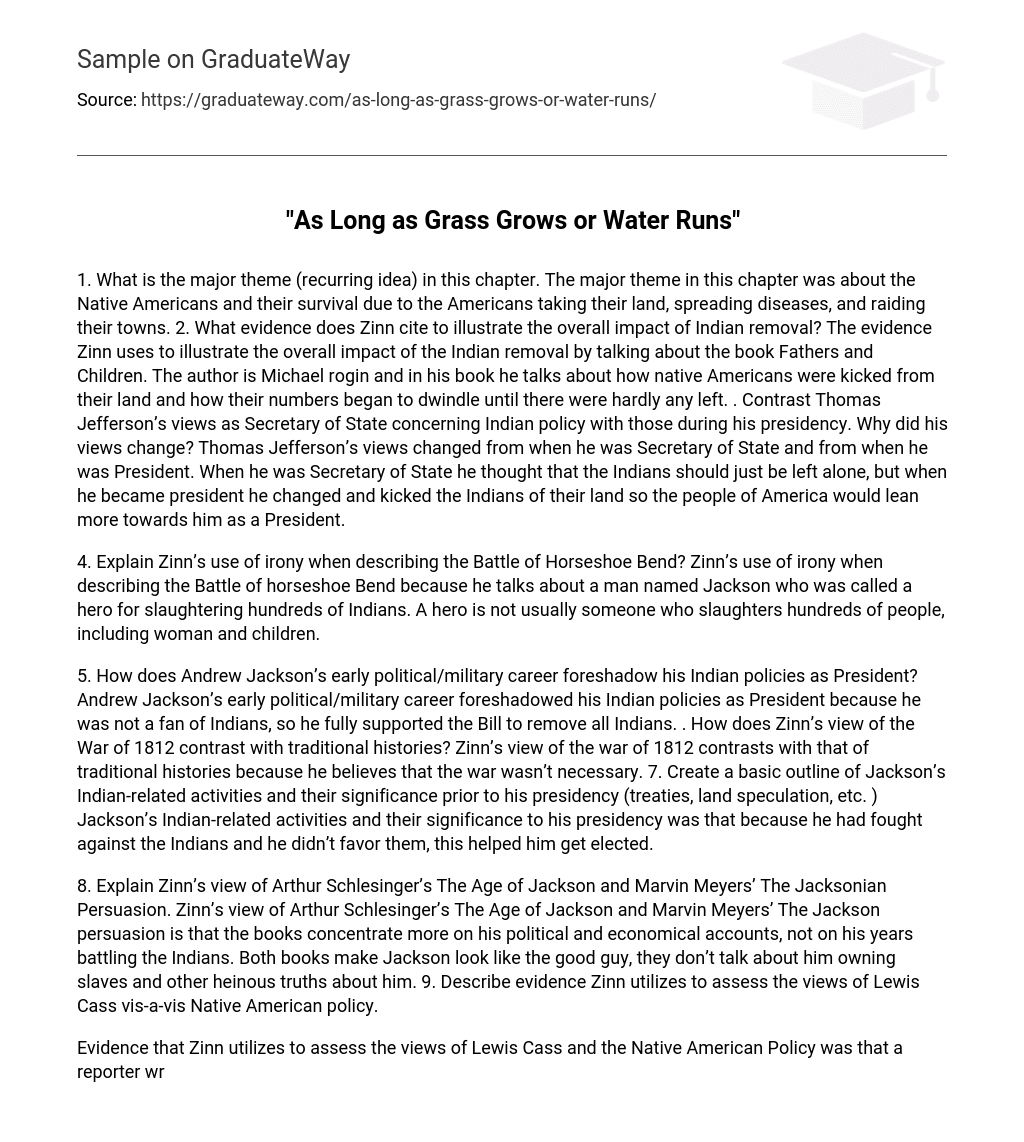1. The main focus of this chapter is the survival of Native Americans during American colonization, the spread of diseases, and the raiding of their towns.
2. To demonstrate the overall impact of Indian removal, Zinn references Michael Rogin’s book “Fathers and Children,” which highlights how Native Americans were displaced from their land, resulting in a significant population decline.
3. Thomas Jefferson had different views on Indian policy as Secretary of State and as President. Initially, he believed in leaving the Indians alone. However, as President, he changed his stance and removed them from their land to gain support from the American people.
4. Zinn employs irony when describing the Battle of Horseshoe Bend, where Jackson’s actions are praised despite his role in the massacre of many Indians, including women and children. The irony lies in the fact that someone who carries out such violent acts is hailed as a hero.
5. Andrew Jackson’s early political/military career foreshadows his Indian policies as President because he strongly disliked Indians and fully supported the Bill to remove all Indians.
6. Zinn’s view of the War of 1812 contrasts with traditional histories as he believes the war was unnecessary.
7. Jackson’s Indian-related activities, such as treaties and land speculation, are significant to his presidency as they showcase his opposition to Indians, which aided his election.
8. Zinn’s perspective on Arthur Schlesinger’s The Age of Jackson and Marvin Meyers’ The Jacksonian Persuasion is that these books primarily focus on Jackson’s political and economic achievements, rather than shedding light on his conflicts with Native Americans. Both books portray Jackson in a positive light, failing to mention his ownership of slaves and other reprehensible aspects of his character.
9. Zinn presents evidence to evaluate Lewis Cass’ stance towards Native American policy.
Zinn examines the perspectives of Lewis Cass and the Native American Policy by referencing a news article which highlights the notion that Indians, being the original inhabitants of America, deserved their own rights. Contrarily, Cass believed that Indians should not be coerced into actions they did not want to undertake, including leaving America or being evicted from their ancestral lands. Additionally, a table can be created to showcase the fate of prominent Southeastern Indian tribes, many of whom were displaced from their long-standing territories and compelled to relocate elsewhere due to the actions of American military forces.
Some Indian tribes, including the Cherokee nation, made their own moves to survive without the army’s assistance. The Cherokee nation modified its culture significantly to ensure their acceptance within the United States. They owned slaves and embraced Christianity as their religion to gain societal approval. Zinn juxtaposes the Nullification Controversy of 1832 and the enforcement of Worcester v. Georgia for what purpose?
Zinn compares the nullification Controversy of 1832 and the enforcement of Worcester v. Georgia, as both highlight the message that Americans should not interfere with the Indians.
The phrase “As long as grass grows or water runs” holds great significance. Jackson used this phrase to assure the Indians that they could keep their land without fear of settlers taking it. However, this turned out to be a lie, as their land was still taken despite Jackson’s promise.





